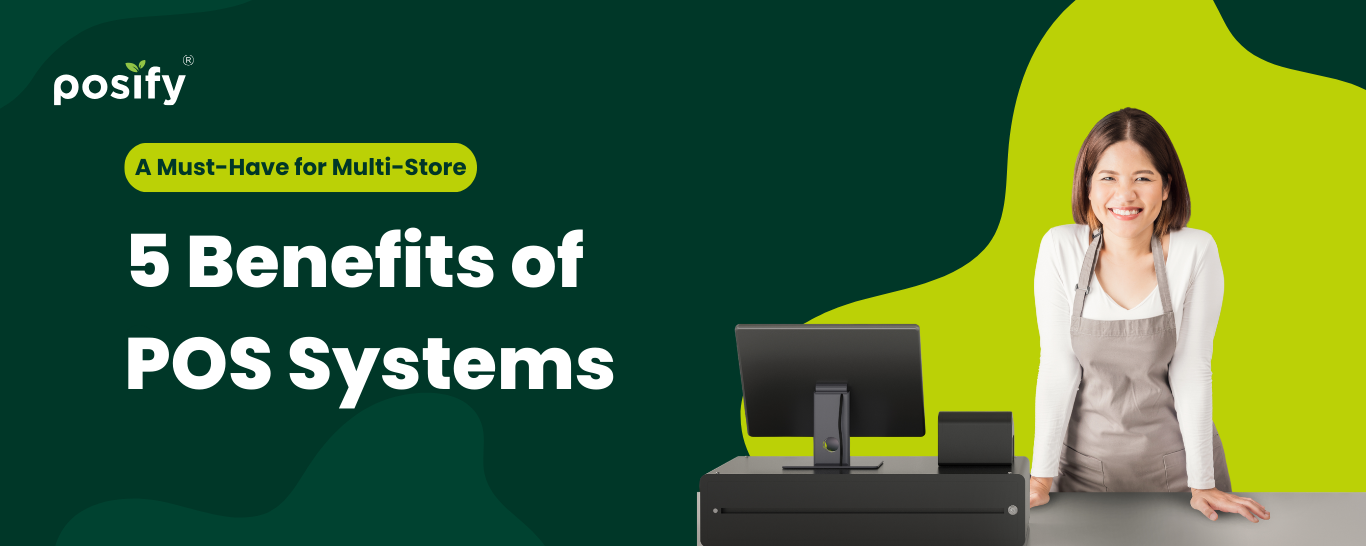A Must-Have for Multi-Store Chains: 5 Core Benefits of POS Systems

Managing multiple stores can sometimes feel like juggling high above the ground — thrilling yet full of challenges. One small slip can cause errors, leading to inventory chaos, lost sales, and even impacting overall operations. Fortunately, with technological advances, modern multi-store POS systems have emerged to help merchants turn this risky “juggling act” into a smooth and coordinated “dance.”
With a multi-store POS system, you can significantly reduce the manpower and time needed to manage multiple locations. Effortlessly synchronize inventory status, track sales data across stores, and boost overall operational efficiency. This not only saves costs but also lets you focus on improving customer experience and business growth.
What Is a Multi-Store POS System?
A multi-store POS system (Point of Sale System for Multiple Stores) is a centralized platform that manages sales, inventory, and customer data across multiple retail locations. It provides a unified interface for owners and managers to access real-time information and performance metrics for all stores, enabling more precise and informed business decisions.
Chat with our expert team via WhatsApp today to learn more about Posify's POS system!
5 Key Advantages of Multi-Store POS Systems
For retailers running multiple physical stores, having an efficient multi-store POS system is essential for improving management efficiency and staying competitive. Here are five core advantages to help you fully control your operations and optimize your workflows.
1. Centralized Management for Full Control Over All Store Operations
When you have many stores, scattered data can prevent managers from getting accurate, real-time operational insights. A multi-store POS system offers a unified management platform where you can view sales performance, inventory status, and customer data across all stores from a single interface, quickly grasping the big picture.
This centralized management not only saves time but also reduces miscommunication and errors between stores, allowing you to spot and resolve operational issues immediately. For example, if sales suddenly drop at a location, you can investigate and adjust quickly. Centralized data also supports unified pricing and promotional strategies, ensuring consistent branding and boosting customer trust.
2. Real-Time Inventory Sync to Reduce Stockouts and Overstock Risks
Inventory management is a core challenge in retail, especially when managing multiple stores with uneven stock distribution. Multi-store POS systems monitor inventory across all locations and warehouses in real time, automatically alerting you to restock or transfer goods to avoid stockouts that cause lost sales.
By flexibly reallocating inventory, you increase product turnover, reduce the capital tied up in excess stock, and better meet local customer demands — improving shopping satisfaction. Transparent, accurate inventory data also helps optimize your supply chain, making purchasing and delivery more strategic.
3. In-Depth Sales Data Analysis to Support Precise Decision-Making
Multi-store POS systems aggregate and analyze sales data from each location, clearly showing bestsellers, sales trends, and employee performance. These insights provide a strong basis for adjusting product mixes, pricing strategies, and promotions based on actual business conditions.
For instance, you can stock up on trending items early or tailor promotions for slow-moving products. Employee performance analysis helps identify top sellers and develop incentive programs that boost team morale. Report exporting and sharing features also streamline cross-department collaboration, driving continuous operational improvements.
4. Customer Data Management and Loyalty Programs to Boost Retention
In today’s competitive retail market, nurturing customer relationships is key to sustained revenue. Multi-store POS systems centralize customer data from all locations and support diverse loyalty programs like points, rewards, and gift cards.
These features let you create targeted promotions for different customer segments, increasing repeat purchases and brand loyalty. When customers enjoy consistent, high-quality service at any store, your brand reputation naturally improves — helping attract more repeat and referral business.
5. Flexible Scalability to Grow Alongside Your Business
Managing multiple stores becomes more complex as your business expands, so scalability is crucial in a POS system. An ideal multi-store POS should be highly flexible, easily adding new product categories, managing more users and devices, and allowing stores to customize features as needed.
Such a system not only reduces future upgrade costs but also ensures your operations run smoothly as you grow, avoiding limits that could hinder business development. Additionally, a flexible architecture helps you quickly adapt to market changes and seize new opportunities.
Conclusion: From Juggling Expert to Management Master with Multi-Store POS
Managing multiple stores no longer needs to be an overwhelming challenge. With a modern multi-store POS system, you can centralize management, synchronize inventory in real time, gain clear sales insights, and build loyal customer bases — making operations flow as smoothly as a well-choreographed dance.
If you’re considering optimizing your multi-store management, choosing a comprehensive, flexible, and scalable POS system is a crucial step toward sustained business growth. Posify offers robust multi-store management features, flexible expansion options, and real-time data analytics, helping you easily monitor every store’s performance and make sharper decisions. Experience Posify today to streamline your multi-store operations, boost efficiency, and confidently move toward success!






